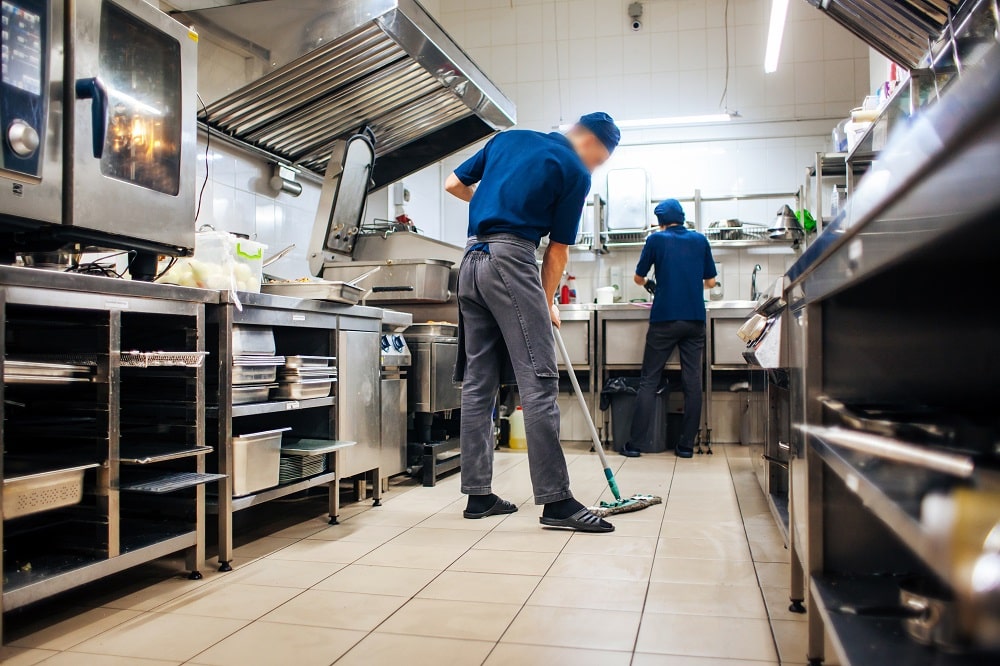What if your commercial kitchen could operate without the constant worry of drain blockages? Imagine a workspace where fats, oils, and grease (FOG) no longer threaten your plumbing system, eliminating unpleasant odors and unexpected downtime. In this comprehensive guide, we’ll explore how biological treatment for dosing offers an effective, eco-friendly solution to these common challenges.
Understanding the Challenge: FOG in Commercial Kitchens
Commercial kitchens inevitably produce significant amounts of FOG during daily operations. When these substances enter the drainage system, they cool and solidify, leading to:
- Drain blockages that disrupt workflow.
- Unpleasant odors affecting the kitchen environment.
- Potential health hazards due to unsanitary conditions.
- Increased maintenance costs from frequent plumbing interventions.
Traditional chemical drain cleaners may offer temporary relief but often at the expense of long-term pipe health and environmental safety.
The Eco-Friendly Solution: Biological Dosing Programs
Biological dosing systems present a sustainable alternative by utilizing beneficial bacteria to break down FOG and other organic waste. These systems work by:
- Introducing specific bacteria strains into the drainage system.
- Establishing bacterial colonies that form a biofilm lining the pipes.
- Continuously digesting FOG, preventing accumulation and blockages.
This method not only maintains clear drains but also reduces odors and minimizes environmental impact.
How Biological Dosing Systems Work
A typical biological dosing system operates as follows:
- Initial Dosing: A substantial amount of bacteria is introduced to establish colonies within the drainage system.
- Automated Maintenance: A dosing unit releases measured quantities of bacteria and nutrients at regular intervals to sustain the colonies.
- Continuous Protection: The active bacteria continuously break down FOG, ensuring drains remain clear and free-flowing.
It’s essential to consult with specialists to determine the appropriate bacterial cultures and dosing rates tailored to your kitchen’s specific needs.
Benefits of Implementing Biological Dosing Programs
Adopting a biological dosing system in your commercial kitchen offers numerous advantages:
- Prevents Blockages: Continuous breakdown of FOG keeps drains clear.
- Eliminates Odors: Reduces the decomposition of organic matter that causes unpleasant smells.
- Eco-Friendly: Utilizes natural processes without harmful chemicals.
- Cost-Effective: Decreases the need for frequent manual cleaning and emergency plumbing services.
- Compliance: Helps meet environmental regulations regarding waste disposal.
Selecting the Right Biological Dosing System
When choosing a system, consider the following factors:
- Kitchen Size and FOG Output: Ensure the system can handle your kitchen’s volume.
- Dosing Mechanism: Automated systems provide consistent dosing without manual intervention.
- Maintenance Requirements: Opt for systems that offer easy maintenance and support.
- Cost: Evaluate both initial installation and ongoing operational expenses.
For instance, the DrainShot™ BioDoser Automatic Dispensing System is designed to remediate drains, grease traps, and lift stations continuously. It automatically dispenses proprietary probiotic formulas to treat organics in wastewater, breaking down FOG and sugars to prevent clogs.
Proper Use and Maintenance
To maximize the effectiveness of your biological dosing system:
- Pre-Installation Cleaning: Ensure drains are free from existing blockages before system setup.
- Monitor Chemical Usage: Limit the use of harsh chemicals like bleach that can harm beneficial bacteria.
- Regular Maintenance: Schedule routine checks to confirm the system functions correctly and replenish bacterial supplies as needed.
Cost Considerations
The investment in a biological dosing system varies based on kitchen size and FOG production. Typically, initial installation costs around £500, with monthly dosing expenses between £40-£60. Annual maintenance is approximately £50. While this represents an upfront investment, the reduction in emergency plumbing calls and compliance with environmental regulations often results in long-term savings.
Conclusion
Implementing an advanced non-chemical biological dosing program is a proactive approach to managing FOG in commercial kitchens. By embracing this eco-friendly solution, you can prevent drain blockages, maintain a hygienic work environment, and contribute to environmental sustainability. Investing in a biological dosing system not only safeguards your kitchen operations but also reflects a commitment to responsible and sustainable practices.

